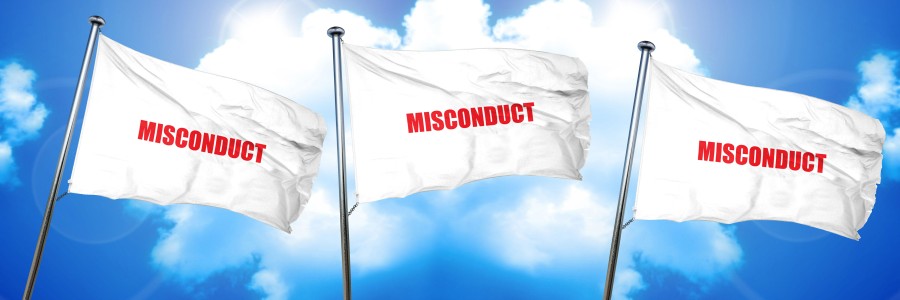
Violation of Company Policy: A Guide for UK Employers
Introduction to Violation of Company Policy
When you think about a harmonious workplace, clear guidelines play a pivotal role. It’s essential to comprehend what exactly constitutes a violation of company policy. Moreover, understanding the ripple effect such a violation can have in the complex realm of UK employment is crucial.
The Essence of Company Policy
At its core, a company policy is a set of guidelines or rules. It helps streamline daily operations and set expectations for employees. When someone breaches these guidelines:
- It disrupts the workplace harmony.
- It can put the company’s reputation at stake.
- It might even lead to legal implications.
The Gravity of Violation in the UK Employment Landscape
Every employer in the UK needs to realize the depth of responsibility they shoulder. A single violation of company policy can ignite a series of legal challenges. Here’s why:
- UK employment laws are stringent.
- Employees are well-informed about their rights.
- Legal ramifications can be both time-consuming and expensive.
For businesses, the takeaway is clear. Fostering a workplace that respects policies and rules isn’t just ethical; it’s a legal imperative. Your proactive measures today can safeguard against complications tomorrow. Remember, a clear understanding of company policies and their importance can help prevent unwanted disruptions, protect the company’s image, and ensure compliance with UK employment laws.
The Legal Framework Surrounding Company Policies in the UK
Delving into UK employment laws, one immediately realizes their intricate nature. For employers, it’s paramount to understand these nuances, especially when navigating the concept of a violation of company policy.
How UK Employment Laws Address Policy Violations
The United Kingdom boasts a robust legal framework catering to employment. Within its confines, company policies hold significant weight. Here’s how:
- The Employment Rights Act ensures protection against unfair dismissal.
- The Equality Act prevents discrimination, which often surfaces in company policies.
- Whistleblowing laws protect employees who report policy violations.
Any breach, be it intentional or inadvertent, can quickly lead to legal challenges. Being aware of these intersections between law and policy is the first line of defence for employers.
Differences Between Statutory Rights and Company-specific Rules
It’s crucial for employers to discern between statutory rights and company-specific policies. While both are pivotal, their origins and implications differ:
- Statutory rights are fundamental rights bestowed upon every employee by law. They encompass areas like minimum wage, working hours, and dismissal rights.
- Company-specific rules are tailored guidelines set by employers. They address unique workplace dynamics, culture, and expectations.
Recognising this distinction aids in better policy formulation and enforcement. For instance, a company policy can never override or diminish statutory rights. If it does, the policy is not just a violation of company policy, but also a breach of the law.
For employers in the UK, comprehending the legal landscape isn’t just beneficial—it’s essential. Keeping abreast of both statutory regulations and the need for clear company policies can drastically reduce potential pitfalls. After all, being forearmed in the realm of employment law is to be forewarned.
Drafting Clear and Comprehensive Policies
In the realm of employment, clarity is not a luxury—it’s a necessity. Crafting comprehensive policies that leave no room for ambiguity is a foundational step for any employer. A meticulously drafted policy not only curbs the risk of a violation of company policy, but also fosters trust and transparency in the workplace.
The Importance of Clarity and Specificity
Being explicit in your policies serves multiple purposes:
- It minimizes the chances of misunderstandings, which can lead to inadvertent breaches.
- It ensures that both employees and employers have a clear roadmap to reference.
- It builds confidence among employees, knowing that expectations are transparent and fair.
Remember, ambiguity can be a breeding ground for conflicts. Eradicating it at the source can save countless hours of deliberation and discord in the future.
Best Practices in Drafting Policies
While drafting your company policies, always keep the following principles at the forefront:
- Use straightforward language, avoiding legal jargon unless absolutely necessary.
- Ensure all stipulations adhere to the UK’s legal standards.
- Regularly review and update policies to reflect changing laws and company dynamics.
Additionally, consider involving representatives from various departments in the drafting process. This collaborative approach not only provides diverse insights but also ensures the policies are holistic and relevant to every facet of the business.
In conclusion, the cornerstone of preventing a violation of company policy lies in the drafting phase. When guidelines are explicit, comprehensive, and accessible, they foster a harmonious workplace environment. As an employer, investing time and resources in this phase can significantly streamline operations and mitigate potential conflicts.
Responding to Alleged Violations: A Step-by-Step Approach
Navigating the waters of an alleged violation of company policy can be daunting. Yet, for any employer in the UK, a systematic and objective approach is pivotal. Responding promptly and fairly not only upholds the integrity of your company but also reassures employees that their concerns are taken seriously.
Procedural Considerations When a Violation is Reported or Identified
Every complaint or report demands your undivided attention. But more than just listening, you must adhere to a set protocol:
- Always maintain confidentiality. This safeguards both the reporter and the accused from undue bias or prejudice.
- Document every detail. From the initial report to the final conclusion, maintaining a record is vital.
- Stay neutral. Approach the allegation without preconceived notions. Let the evidence guide you.
Remember, consistency is key. Whether it’s a minor infraction or a major breach, the process should remain uniform.
The Role of Investigations, Hearings, and Disciplinary Actions
Once a violation of company policy is reported, it’s crucial to initiate a thorough investigation. Begin by appointing an unbiased investigator, preferably someone well-versed in UK employment laws. This individual, or team, should gather evidence, interview relevant parties, and ultimately, provide an objective assessment.
If the investigation substantiates the violation, a formal hearing may be in order. This allows the accused to present their side of the story. Based on the hearing’s outcome, appropriate disciplinary actions should be meted out. This might range from a simple warning to more severe disciplinary measures, depending on the gravity of the violation.
Throughout this phase, it’s paramount to remember the importance of fairness. Every employee, irrespective of their role or tenure, deserves an unbiased evaluation. Moreover, being transparent about the process reassures your workforce that every violation of company policy is treated with the gravity it warrants.
In essence, while confronting a policy breach can be challenging, a structured and objective approach ensures justice prevails. As an employer, your commitment to fairness can significantly enhance trust and morale within the company.
Preventing a Violation of Company Policy: Training and Communication
The adage ‘prevention is better than cure’ holds profound truth, especially in the context of a violation of company policy. Proactive measures to thwart potential breaches are far more efficient than reactive steps taken post-violation. This is where effective training and robust communication strategies come to the forefront.
The Importance of Regular Training Sessions
Training isn’t just a one-time endeavour; it’s an ongoing commitment. Regular training sessions serve multiple objectives:
- They keep employees updated on any changes or additions to company policies.
- They reinforce the importance and rationale behind each policy.
- They offer employees a platform to clarify doubts and ask questions.
By fostering a culture of continuous learning, you not only empower employees but also significantly reduce the likelihood of unintentional policy breaches.
Strategies for Effective Communication
In today’s digital age, communication isn’t just about dissemination; it’s about engagement. To ensure your message on policies and guidelines is not just heard, but also understood and internalised:
Use Multiple Platforms: From emails and intranet posts to team meetings, diversifying your communication channels ensures maximum reach.
Encourage Feedback: Open the doors to two-way communication. Solicit feedback on policies, and address concerns promptly.
Highlight Real-life Scenarios: Contextualise policies by discussing real or hypothetical cases. This helps employees understand the practical implications of a violation of company policy.
Make Resources Accessible: Ensure all employees have easy access to company policies. Whether it’s a printed handbook or a digital portal, availability is key.
In conclusion, the dual pillars of training and communication can work wonders in preventing policy violations. An informed and engaged workforce is your best ally in upholding the sanctity of company guidelines. As an employer, your proactive approach not only safeguards against potential legal complications but also fosters a culture of trust and transparency.
Consequences of Ignoring a Violation of Company Policy
In the bustling dynamics of business, it’s sometimes tempting to overlook certain issues, hoping they’ll resolve on their own. However, when it comes to a violation of company policy, this passive approach can have grave repercussions. Recognizing the aftermath of turning a blind eye is crucial for every employer seeking to maintain a harmonious and compliant workplace.
The Direct Impact on Workplace Morale
Ignoring policy breaches sends a clear message: inconsistency and lack of accountability. This perception can have profound consequences:
- It diminishes trust in management.
- It may foster a culture of indifference, where employees feel their concerns aren’t valued.
- It can lead to decreased motivation and productivity.
When employees sense a lack of consistency in upholding policies, the very fabric of the workplace can begin to fray.
Legal Repercussions of a Violation of Company Policy in the UK Context
Overlooking a violation of company policy isn’t just an internal issue; it can escalate to legal complexities. UK employment laws are stringent, and failure to address policy violations can lead to:
Legal Disputes: Ignored violations can culminate in lawsuits, dragging the company into lengthy and costly legal battles.
Reputational Damage: Legal disputes can tarnish a company’s image, impacting its standing in the market and amongst its stakeholders.
Financial Strains: Apart from potential legal fees, a company might also face penalties or compensatory demands.
Operational Disruptions: Legal entanglements can divert significant resources and attention from core business operations.
In essence, the legal landscape in the UK demands vigilance. Any lapse in addressing policy breaches can set off a chain of undesirable events, all of which can be avoided with proactive management.
In conclusion, the gravity of ignoring a violation of company policy cannot be stressed enough. Beyond the immediate fallout, it can have long-term repercussions on a company’s health, both internally and externally. As custodians of a company’s ethos, employers bear the responsibility to act decisively, ensuring that policies aren’t just pieces of paper but living guidelines respected by all.
Call John Bloor at EBS Law on 01625 87 4400 if you are an employer and need free Employment Law Advice.

